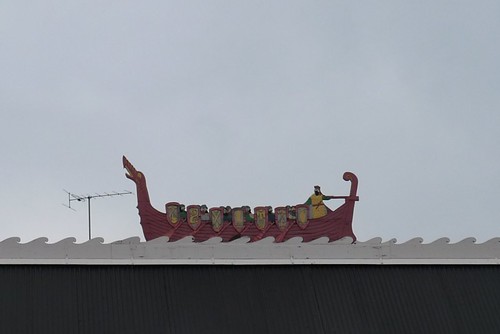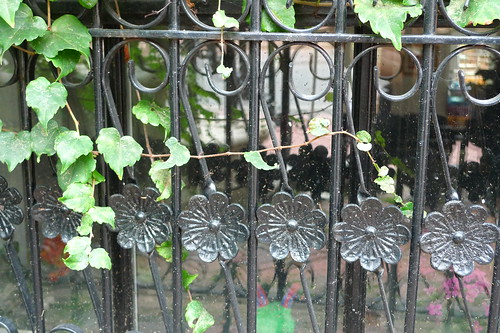THUNDERTOME II: ROUND 7
SURVIVOR: the long ships (frans g. bengtsson)*
CHALLENGER: the thousand autumns of jacob de zoet (david mitchell)
in conversation with canada's national post, my boyfriend david mitchell mentioned that his latest novel, the thousand autumns of jacob de zoet, was "the hardest book to write, and if [he] didn't think it was the best one then [he] couldn't have handed it in." the first half of that comment makes a lot of sense to me; as in other works of his i've read (number9dream and black swan green appeared in THUNDERTOME last year, and the latter did some serious damage before updike brought the pain), each paragraph is its own tide pool of miniature agendas. achieving that level of detail in a novel about near-future japan or the english countryside of one's youth is one thing; getting it right when you're writing about a microscopic dutch trading center on dejima, an artificial island outside ultra-isolationist nagasaki in 1799, is another circle of research hell (mitchell hit the books at leiden university in the netherlands and met with specialists on the edo period). it's abundantly clear that mitchell spent a lot of time getting comfortable with his subject. is jacob de zoet his best book, now? that argument's a bit more slippery.
the jacob of the title is a scrupulous, god-fearing young dutchman sent to audit the dutch east indies company's activities at its outpost in nagasaki harbor; if he acquits himself well, he'll sail back to domburg in five years and marry his betrothed. his faith is a bit of a problem, as christian tchotchkes are forbidden on dejima; the family bible he's concealed in his trunk is overlooked by the japanese authorities, but it causes quite a bit of trouble as his days on the island become months and years. his scruples are another problem, for his superiors have been cooking the books for quite some time. his (and mitchell's) biggest problem, alas, involves the ladies; de zoet falls in love with orito aibagawa, a young japanese woman who's been given permission to study midwifery with the westerners. his romantic problem is all kinds of interesting at first - while the dutchmen take japanese mistresses from the lowest classes, involvement with a comparatively well-born woman like miss aibagawa is unthinkable - and the tensions between what is expected of him, what he expects of himself, and how he actually feels (or thinks he feels) about her give the first half of the book a fine crackle of energy.
then - how to put this without spoiling the story? - things get more than a bit gothic. under pressure from a powerful local authority, miss aibagawa's family yanks her from her studies with the doctor on dejima and packs her off to a monastery where early-seasons-of-buffy-the-vampire-slayer-type tribulations await her. mitchell has said that he "ingested a lot of historical manga"** in his research for the novel; no shit. it's wildly entertaining, mind you, but it's awfully jarring in the context of his more realistic subplots. i'm no expert on japanese history, and lord knows some of the big baddies of, like, western civilization were awfully kinky; let's say that if i were to spend a few years researching and writing a novel about a young man's adventures on a sixteenth-century hungarian farm, i'd do a lot of soul-searching before sending his little sister to work for elizabeth bathory.
all of that said, i don't mind being jarred a bit every now and again; while i wouldn't say jacob de zoet is mitchell's best book (i still prefer black swan green, and it's [cough] possible i might fancy one of the others a bit more than that; check back in a few 'TOMES), its experiments are undertaken with gusto, and i won't ding him for building in the sort of suprises i like so well in his other books. also, i just let a bunch of vikings sail over one of the most emotionally realistic books in the western canon; i'd infuriate the ghost of anna karenina if i abandoned my appreciation for adventure now. also also, mitchell seasons his realism-and-melodrama scrapple with passages like this:
Gulls wheel through spokes of sunlight over gracious roofs and dowdy thatch, snatching entrails at the marketplace and escaping over cloistered gardens, spike-topped walls, and triple-bolted doors. Gulls alight on whitewashed gables, creaking pagodas, and dung-ripe stables; circle over towers and cavernous bells and over hidden squares where urns of urine sit by covered wells, watched by mule drivers, mules, and wolf-snouted dogs, ignored by hunchbacked makers of clogs; gather speed up the stoned-in Nakashima River and fly beneath the arches of its bridges, glimpsed from kitchen doors, watched by farmers walking high, stony ridges. Gulls fly through clouds of steam from laundries' vats; over kites unthreading corpses of cats; over scholars glimpsing truth in fragile patterns; over bathhouse adulterers; heartbroken slatterns; fishwives dismembering lobsters and crabs; their husbands gutting mackerel on slabs; woodcutters' sons sharpening axes; candlemakers rolling waxes; flint-eyed officials milking taxes; etiolated lacquerers; mottled-skinned dyers; imprecise soothsayers; unblinking liars; weavers of mats; cutters of rushes; ink-lipped calligraphers dipping brushes; booksellers ruined by unsold books; ladies-in-waiting; tasters; dressers; filching page boys; runny-nosed cooks; sunless attic nooks where seamstresses prick calloused fingers; limping malingerers; swineherds; swindlers; lip-chewed debtors rich in excuses; heard-it-all creditors tightening nooses; prisoners haunted by happier lives and aging rakes by other men's wives; skeletal tutors goaded to fits; firemen-turned-looters when occasion permits; tongue-tied witnesses; purchased judges; mothers-in-law nurturing briars and grudges; apothecaries grinding powders with mortars; palanquins carrying not-yet-wed daughters; silent nuns; nine-year-old whores; the once-were-beautiful gnawed by sores; statues of Jizo anointed with posies; syphilitics sneezing through rotted-off noses; potters; barbers; hawkers of oil; tanners; cutlers; carters of night soil; gatekeepers; beekeepers; blacksmiths and drapers; torturers; wet nurses; perjurers; cutpurses; the newborn; the growing; the strong-willed and pliant; the ailing; the dying; the weak and defiant; over the roof of a painter withdrawn first from the world, then his family, and down into a masterpiece that has, in the end, withdrawn from its creator; and around again, where their flight began, over the balcony of the Room of the Last Chrysanthemum, where a puddle from last night's rain is evaporating; a puddle in which Magistrate Shiroyama observed the blurred reflections of gulls wheeling through spokes of sunlight. This world, he thinks, contains just one masterpiece, and that is itself.poetry is the best sort of ambush. jacob de zoet isn't the most elegant beast, but it's unquestionably alive.
VICTOR: red orm and his crew sail on, i think; while mitchell's hybrid has some interesting appendages, the long ships's straightforward bloodthirstiness serve it well in combat.
imaginary reading group discussion questions
01 speaking of my boyfriends, are any of you planning on seeing drive? in a somewhat spoilerrific review, my boyfriend anthony lane warns that it's brainy (literally, not figuratively), but lily approves.
02 if you've read more than one mitchell novel (including jacob de zoet), where does this one rank?
03 if you were to write up the adventures of some 16th-century hungarian guy, would you include the ol' blood countess?
04 speaking of wildly unrealistic subplots, do you follow salman rushdie on twitter?
05 does mitchell's wheeling-gulls mega-rhyme please you?
06 how obvious is it that i'm like 70% cold medicine by volume today?
*previous battle here.
**Lone Wolf and Cub, about an Edo-era mercenary and his infant son who travel up and down Japan with an improbable-looking pram. Not exactly PC, but imaginative, clever and finely researched."
















